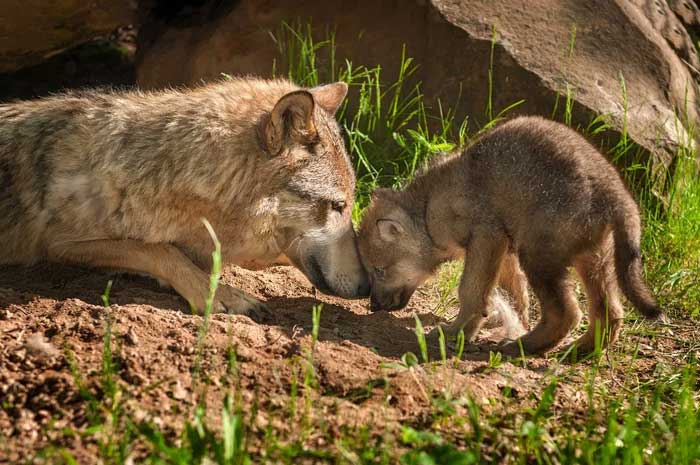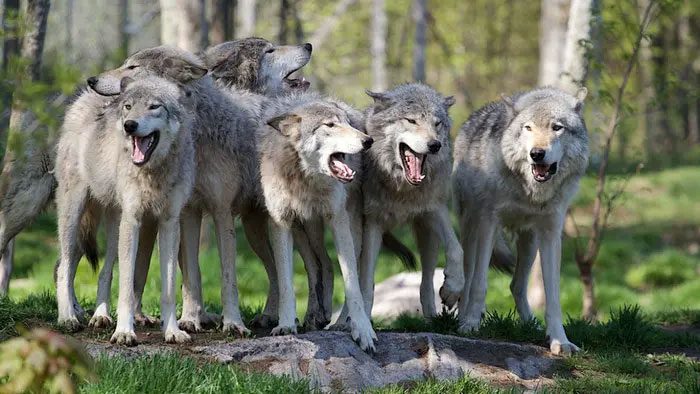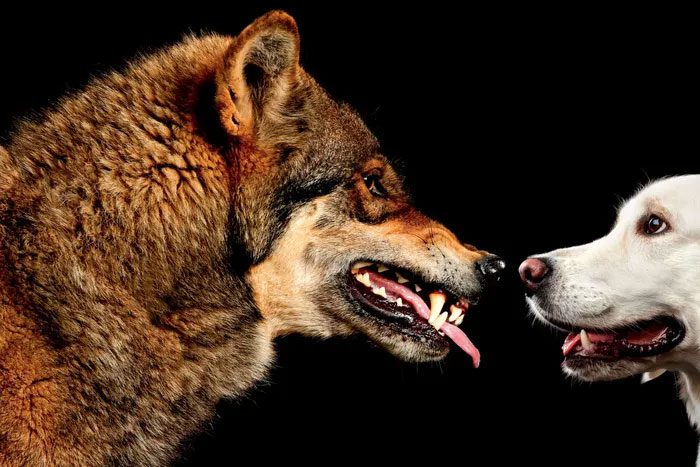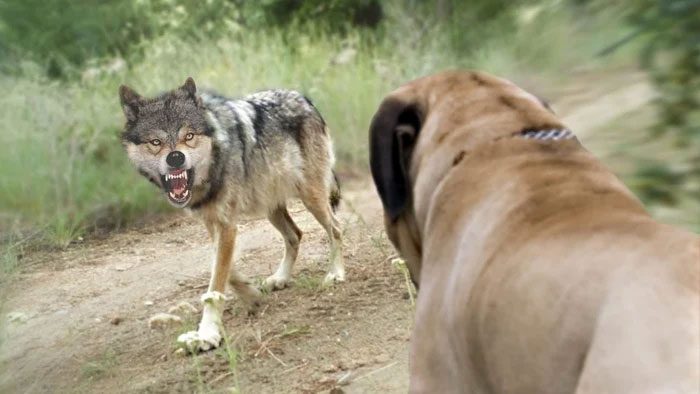This is a controversial issue related to knowledge about animal behavior, evolution, genetics, and many other aspects.
Animal Behavior and Evolution
To answer this question, we first need to understand animal behavior and evolution. Animal behavior is the result of their adaptation and survival processes, influenced by both genetic and environmental factors. Evolution is the process by which organisms change to adapt to their environments, primarily through the impacts of natural selection.
Wolves are wild animals with a strong sense of family and social behavior. They live in the wild and need to cooperate with each other for hunting, breeding, and territorial protection.
In wolf packs, which have a strict hierarchy, female wolves often become the leaders, guiding the pack and maintaining territory and order within the group.
 Dogs are closely related to wolves.
Dogs are closely related to wolves.
Dogs are close relatives of wolves, and after a long period of domestication by humans, they have become pets. Compared to wolves, dogs have lost much of their wildness and original social behaviors but still retain some social skills and group identification.
From these characteristics, it can be observed that wolves and dogs are both highly social animals, with many similarities in behavior and evolutionary processes, but there are also some differences.
Experiments and Behavioral Research
To explore whether wolves consider puppies as their own offspring, scientists have conducted a series of experiments and behavioral studies. Below, we will sequentially examine the results and findings of these experiments and studies.

Wolf pack.
Experiment 1: A Study by Canadian Researchers
In one experiment, Canadian researchers placed a puppy next to a newly born female wolf in a brand new wolf den. They observed the interactions and behaviors between the wolf and the puppy.
The observations showed that the female wolves did not treat the puppies as if they were their own offspring. On the contrary, the female wolf exhibited restlessness and a certain level of rejection, trying to forcefully drive the puppy out of the den. In some cases, the female even bit the puppy, displaying aggressive behavior.
The conclusion of this experiment is that wolves do not consider puppies as their own offspring.

Wolves do not consider puppies as their own.
Experiment 2: A Study by Italian Researchers
Italian researchers used a medium-sized dog and a Arctic wolf in their experiments. They placed newborn puppies between the wolves and dogs, then observed their interactions and behaviors.
The results showed that Arctic wolves exhibited some curious behaviors but did not display any maternal instincts. Instead, they showed aggressive behaviors, even biting the puppies in some cases.
However, when researchers separated the puppies from the medium-sized dogs into two cages, the Arctic wolves showed certain reactions, such as sniffing the puppies and circling in front of the cage. This indicates that the wolves might be aware of the presence of other animals around them, but they do not consider the puppies as their own.
From the results of these experiments and studies, it is clear that wolves do not see puppies as their own; their behaviors and expressions towards puppies differ from those towards their own offspring.

The behavior and expression of wolves towards puppies differ from their own.
Why Don’t Wolves Consider Puppies as Their Own?
This leads us to the reasons why animals evolve and behave as they do. The behavior and evolution of wolves are influenced by many factors, such as environment, resources, and genetics. They are a relatively primitive species with strong wildness and family ties.
In the wild, wolves need to cooperate with each other for hunting, breeding, and protecting their territory.
Dogs are close relatives of wolves, but as humans domesticated and bred them, their genes and behaviors gradually changed. Humans have selectively bred dogs for social behavior, cognition, and emotional expression different from wolves in nature. Therefore, the behaviors and evolution of dogs and wolves have been influenced differently.

The behaviors and evolution of dogs and wolves have been influenced differently.
For wolves, they exhibit intense reactions when their offspring and territory are threatened. When encountering creatures like puppies, they do not see them as their own but rather as competitors or potential prey.
Additionally, dogs and wolves differ in their social hierarchies and behaviors. In nature, wolves establish social structures and rules through kinship, status, and behavior among groups. Dogs are more likely to form close relationships with humans and assume various roles within families and societies.
Thus, the behaviors and evolution between wolves and dogs differ significantly; wolves do not consider puppies as their own, due to differences in behavioral habits and ecological adaptation mechanisms of different species in nature.


















































